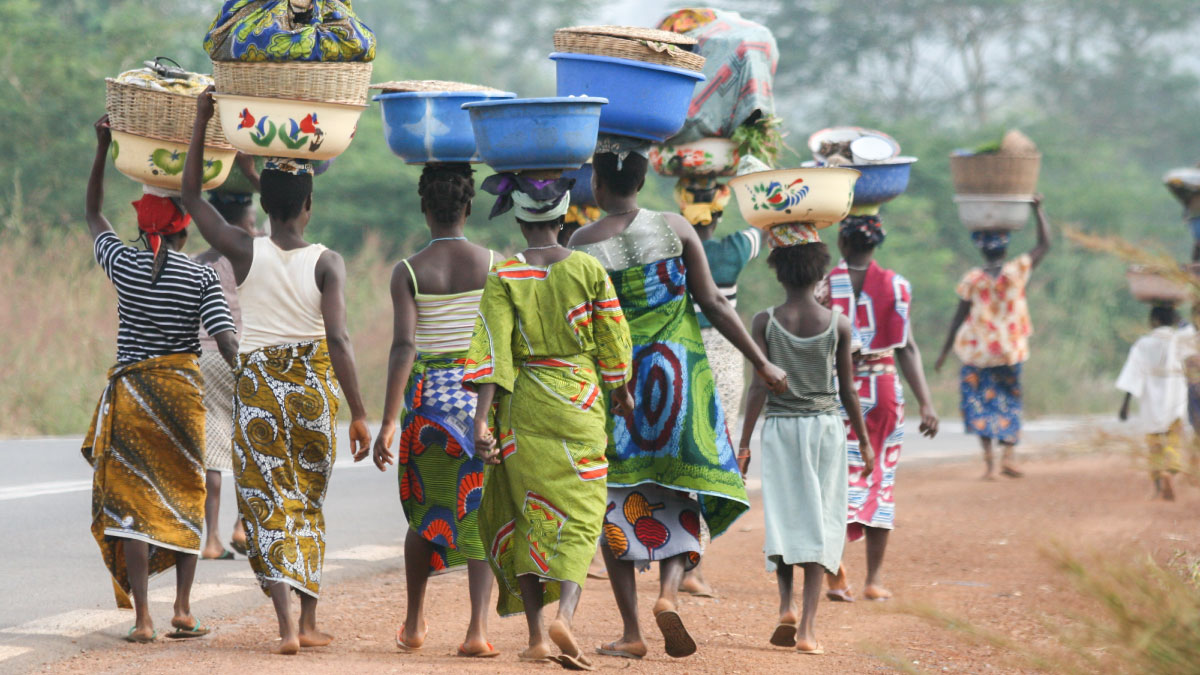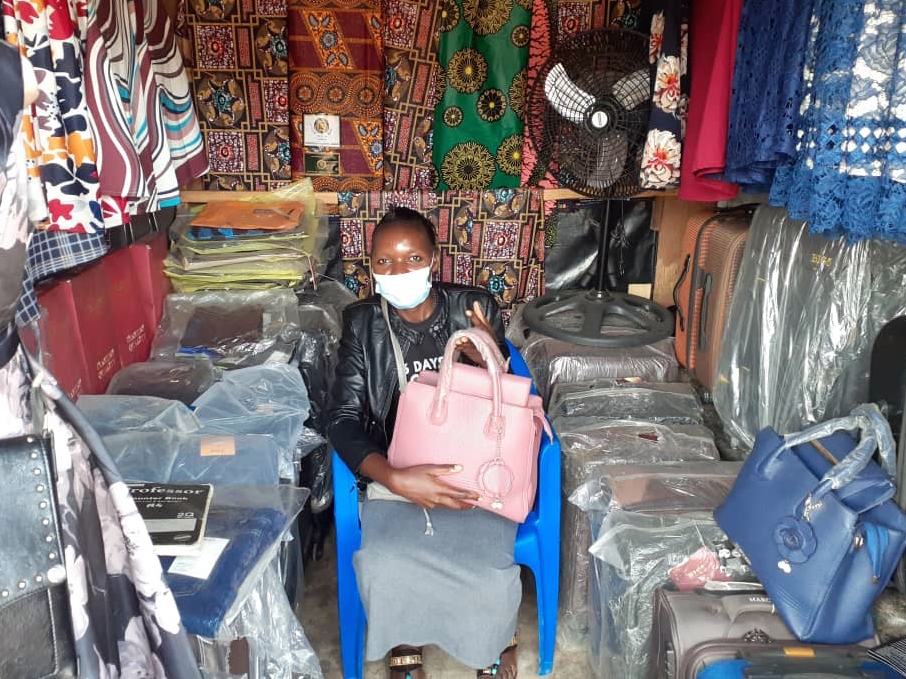UNCTAD has equipped women traders in border areas of Malawi, Tanzania and Zambia with the information and entrepreneurial skills they need to survive and recover from the crisis.
© Richard
Charity Chimphamba, a Malawian small-scale trader, had a thriving business before the COVID-19 pandemic struck.
She regularly crossed the Malawi-Tanzania border to import clothes, shoes, blankets, bags and kitchenware, selling them at her shop in Koronga, 45 kilometres away.
But the pandemic forced her to stop crossing the border. “Due to fear of COVID-19, I decided to start using importing firms to bring me the goods,” Ms. Chimphamba said.
Pandemic-induced movement restrictions and new COVID-19 certificates that cost $50 and are valid for 72 hours also posed a challenge.
Her business took a massive hit.
In the wake of COVID-19, Ms. Chimphamba’s revenue fell by 60%, mainly due to higher costs of buying goods through transport companies and sourcing them locally.
Also, her sales tumbled as some customers feared that imported products might be infected with COVID-19, while many could no longer afford to buy her goods.
To cope with the income loss, Ms. Chimphamba started growing food for her family and dipped into her savings to meet other needs.
Mitigating pandemic impact
Charity Chimphamba in her store in Koronga, Malawi.
Ms. Chimphamba was among 131 small-scale cross-border traders, 120 of them women, who attended UNCTAD training workshops held in border towns of Malawi, Tanzania and Zambia in February.
They were organized as part of a multi-agency project and equipped the traders with information on trade rules and customs procedures to help them navigate their way amid the pandemic.
The project seeks to strengthen the resilience of micro, small and medium-sized enterprises in developing countries and economies in transition, by improving their capacity to mitigate the pandemic’s economic and social impacts.
Each workshop included a session on measures in place to contain COVID-19 during cross-border trade, facilitated by a border health official.
The sessions helped the traders understand the sanitary measures required by their own countries and those from which they source their products.
“In the absence of other training events on COVID-19 in our country, our workshops often represent the first opportunity for traders to know the preventive measures and health procedures,” said Benedict Lema, an UNCTAD trainer in Tanzania.
UNCTAD started this series of workshops a year ago, vastly improving the awareness of cross-border traders on formal trade procedures.
“Many traders who attended the workshops now know the procedures to follow before crossing the border,” said Precious Nachona, a trade information desk officer in Nakonde, Zambia. “This will help them switch from informal to formal cross-border trade.”
Why understanding border procedures is crucial
UNCTAD border workshops combine one day of training on trade rules, traders’ rights and obligations with five days of work focused on building entrepreneurial skills based on the Empretec methodology.
Empretec is UNCTAD’s flagship capacity-building programme designed to unleash personal entrepreneurial potential.
During the workshops, presentations on cross-border trade rules and traders' rights and obligations were eye-openers to many women traders who have opted for informal crossing paths.
These paths may expose them to health risks, violence, harassment, bribes, high fines and confiscation of their merchandise if they’re caught by border authorities.
“We have counted more than 200 unauthorized entry points along our border, used by traders to bypass official crossings,” said Ernest Daudi, an immigration officer in Tunduma, Tanzania.
Training on border procedures, simplified trade regimes and rules of origin helps informal traders consider trading through formal crossings as a viable option, dispelling their worries about dealing with border authorities.
“The training has removed my fear of crossing the border through official passages. Knowing my rights as a trader will help me boost my business and formalize it,” said Tiyanjane Malunga, another trader in Malawi.
COVID-19 has tested entrepreneurial skills
The first wave of the pandemic and related border closures put cross-border trade on hold. Traders redirected their business funds to covering family needs.
Now many of them lack cash to stock goods and are looking for other business opportunities with lower starting capital.
“Most of us reduced our expenditures, and some completely shut businesses after using all the capital to meet family needs,” Ms. Chimphamba said.
UNCTAD’s workshops strengthened the traders’ entrepreneurial capacity, helping them identify and seize opportunities for growth in the harsh business environment created by the pandemic.
Following the training, Ms. Chimphamba has set her sights higher. “In the future, I’d like to order goods from Tanzanian suppliers online and diversify my business activities in agriculture,” she said.
UNCTAD is committed to helping the traders survive the pandemic and empowering them to realize their dreams. “The small-scale cross-border traders need support now more than ever,” said Simonetta Zarrilli, who leads UNCTAD's programme on trade and gender.
“COVID-19-related measures and restrictions pose a challenge, but the traders have proven their endurance, overcoming odds to ensure the wellbeing of their families,” she said.
Ms. Zarrilli said more support can propel the traders into vibrant micro-entrepreneurial activities with significant potential to help alleviate poverty, contribute to food security and drive a stronger recovery from the pandemic.


